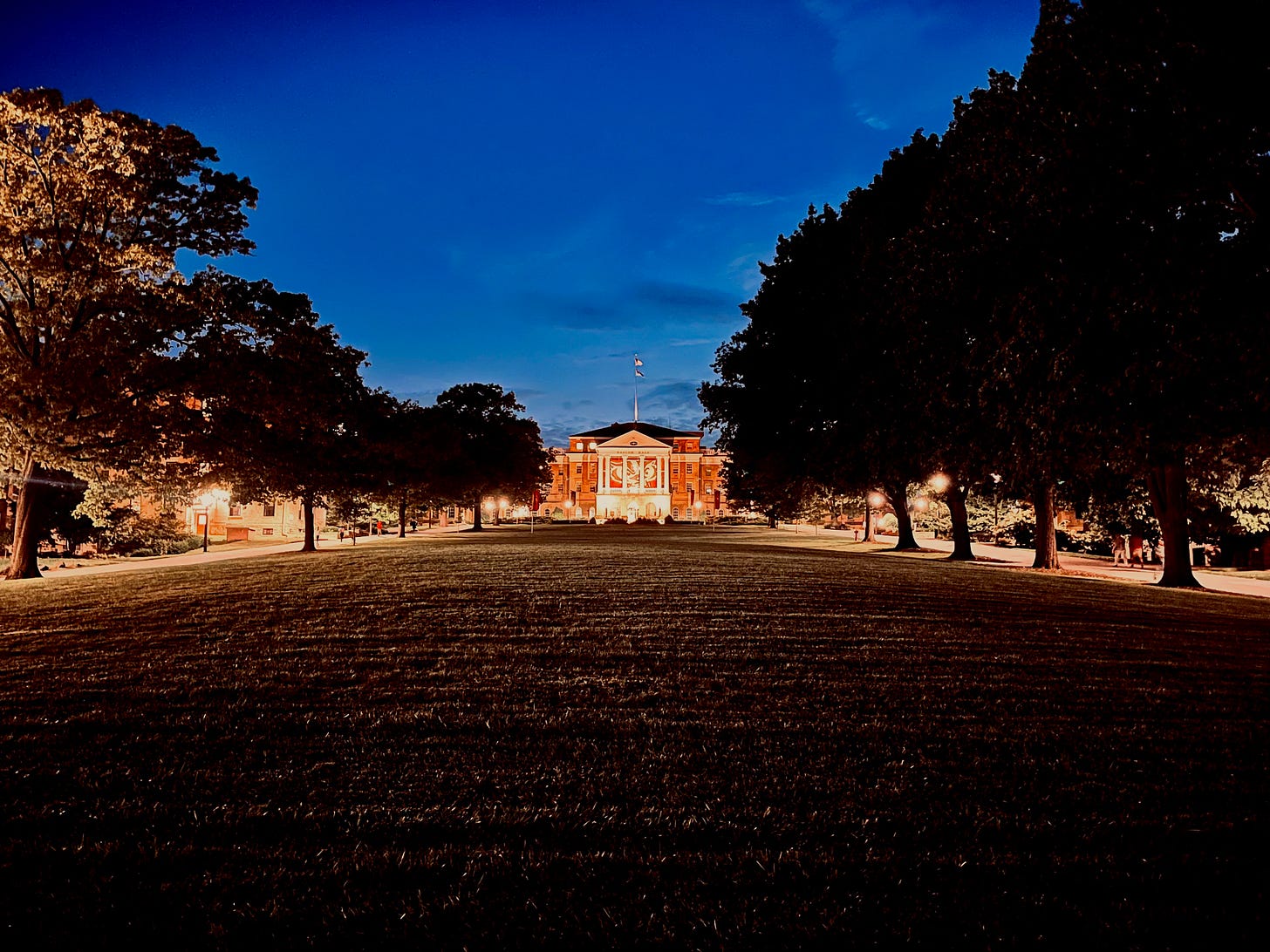Wisconsin Exchange Seeks to Promote Pluralism at UW-Madison
The effort aims to turn “civil debate into a regular practice” on campus
UW-Madison launched the Wisconsin Exchange, a new initiative to foster civil dialogue among both students and faculty on campus, late last month. Subtitled “Pluralism in Practice,” the effort aims to turn “civil debate into a regular practice” by hosting a range of speakers and awarding grants for novel pluralistic frameworks.
Chancellor Jennifer Mnookin commented on the program in a recent PBS Wisconsin interview, saying that the goal of the Wisconsin Exchange is much “deeper and broader” than addressing previous student complaints about liberal professors. Mnookin also emphasized that the Exchange is “starting out with people who are interested in doing this. It won’t reach everybody on our very large, pluralistic campus from the get-go.”
The campus administration’s shift to the language of pluralism can be interpreted as a reaction to criticism of diversity, equity, and inclusion efforts that had ramped up in recent years. This past summer, the university’s Division of Diversity, Equity, and Educational Achievement was dissolved after more than 15 years as a freestanding entity. The strongest opposition to DEI initiatives has been in response to their perceived impact on hiring, which many claim lead to unfair practices that value characteristics like race, gender, or sexuality over merit.
The Wisconsin Exchange has already booked Greg Lukianoff, the president of the Foundation for Individual Rights and Expression, for a spring speaking event. The most recent FIRE Free Speech Rankings gave UW-Madison an “F” Speech Climate Grade. The Exchange will also host former Archivist of the United States Colleen Shogan.
It also listed multiple civil discourse events of interest, including one with National Review senior writer Dan McLaughlin, an event The Madison Federalist hosted.
Aside from holding public events and funding conversation-based initiatives like the Deliberation Dinners, the Exchange will fund five to ten several-thousand-dollar grants for student and faculty-led projects. A pluralism postdoctoral fellowship will also begin in fall 2026.
Cecelia Klingele, Ananth Seshadri, and Alex Tahk, three professors who were part of a Young Americans for Freedom panel earlier this year discussing intellectual diversity on campus, hold roles on the Wisconsin Exchange’s Steering Committee.
Percival Matthews, who serves as special advisor to the Chancellor for access and community, also holds a position on the Committee. Matthews previously referred to President Trump as “racist” and argued that it is “impossible to read” the U.S. Supreme Court decision that overturned affirmative action “as anything other than a suggestion that many trainees of color do not deserve to be in the university space at all.”
Other members of the Steering Committee include journalism professor Mike Wagner, interim Provost John Zumbrunnen, and College of Letters & Science Dean Eric Wilcots.
Managing editor of The Madison Federalist Courtney Graves was invited to give feedback on the initiative in early October. She said, “I was very appreciative of the university reaching out to me for input.”
However, Graves is skeptical that primarily focusing on events would reach enough students. “In order fix the climate on campus, the university needs to look to the root of the problem: the classroom.” She added, “True intellectual diversity will only come to fruition if we increase ideological perspectives within our faculty, make dissenting views apart of our curriculum, and improve free speech rights on campus.” Graves said, “I look forward to further discussions with the university.”




